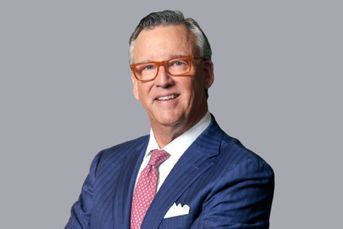Pandemic likely to have lasting effect on workplace benefits, survey shows

A third of people say they would quit rather than have to return to an office, a recent survey found.
In a job market where workers are gaining more power to negotiate flexible work arrangements and benefits, employers could find themselves having to bring more to the table.
Nearly a third of people don’t want to give up the freedom of remote work that was prompted by the pandemic, saying they would quit before returning to traditional office life, according to a report Wednesday from Allspring Global Investments.
Workers are also eager to retire, with 48% indicating they would hang up their hats sooner than expected if they weren’t dependent on employers for health care insurance, that report found.
Nearly as many, 44%, said they plan to take Social Security payments as early as possible, even if that meant having less income. Among retirees, 56% said they had used that strategy.
With resignations across the country at a high point, some employers are sweetening benefits. At the base of that is 401(k) contributions – large firms like Facebook’s Meta and KPMG have indicated they’re putting more money into their workers’ accounts, according to a recent story in the Wall Street Journal.
The percentage of companies planning to bump up contributions for their employees increased by a third, going from 12% in 2021 to 16% this year, plan sponsor survey data from Callan cited by the Journal show.
Some firms have also explored student loan payment perks, although that kind of benefit might be near a saturation point, according to a separate recent report from plan record keeper Alight Solutions.
More than a quarter of employers provide access to services that can guide workers on student loan consolidation, and half said they are at least moderately likely to add that feature, Alight found. A smaller percentage, 12%, currently offer student loan repayment assistance, and 39% indicated they are considering such a benefit for their employees.
Few, however, have expanded their 401(k)s to allow “matching” contributions on behalf of employees who don’t put their own income into the plans but instead are paying down student loans. Three percent of 110 plan sponsors Alight surveyed last fall offer that benefit, but 37% showed interest in updating their benefits packages to allow such contributions.
Employers are also increasingly interested in diversity and inclusion related to their 401(k)s and financial wellness programs, with 80% saying that would be a focus for them this year.
Ninety-four percent also said they’re at least somewhat likely to provide financial guidance services beyond retirement saving, and 85% indicated they’re evaluating how the services they currently provide are used by employees, according to Alight. Only about 5% to 10% of workers tend to use financial wellness services, that company found.
Allspring’s survey, which was conducted last summer by The Harris Poll, included responses from more than 3,400 respondents, about a third of whom were retirees.
Data from that report show a need for more retirement income options within employer-sponsored plans, the company wrote.
While millennial respondents pointed to a planned retirement age averaging 61, a quarter said they had no idea when they would stop working. Among retirees, 60% didn’t end their careers when they had planned — with 51% retiring earlier and 9% later.
“Most people should have a contingency plan — some may end up working longer than expected while others may have to stop working for reasons beyond their control,” the Allspring report read.
Less than a quarter of people who are currently working said they expect their retirement savings to last more than 20 years, and many expressed uncertainty about how much they will be able to rely on Social Security in the future, the report found.
Learn more about reprints and licensing for this article.








